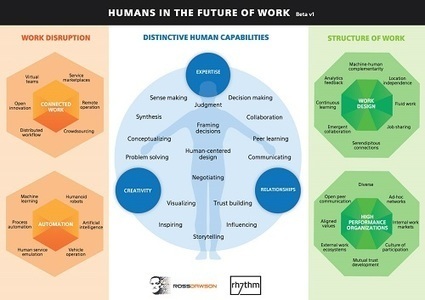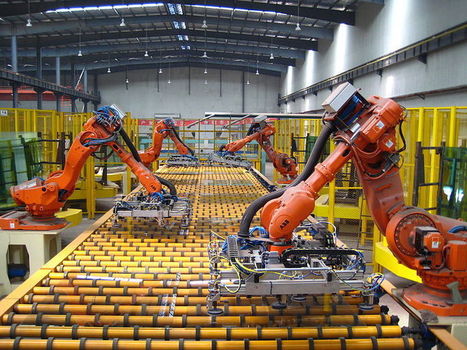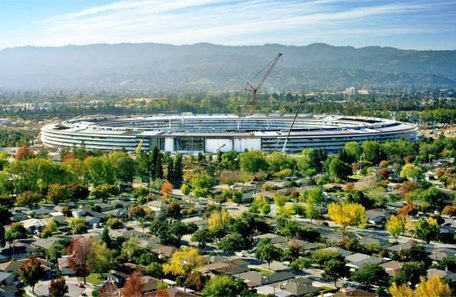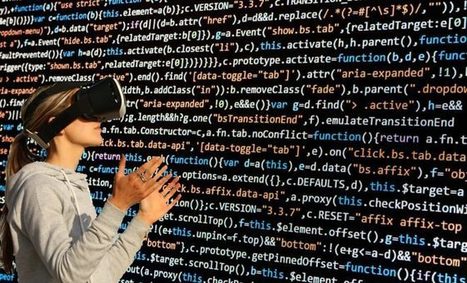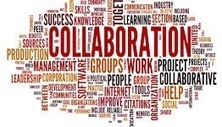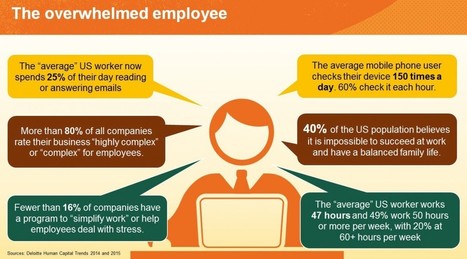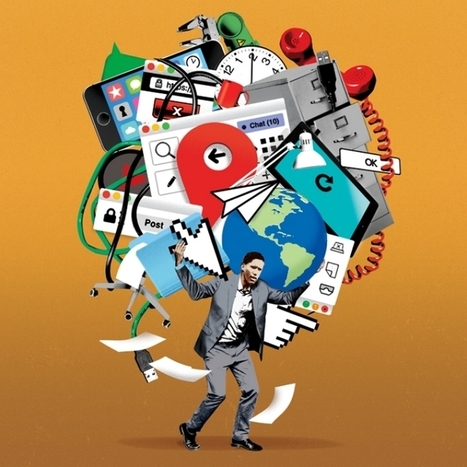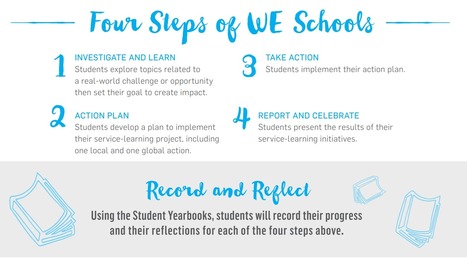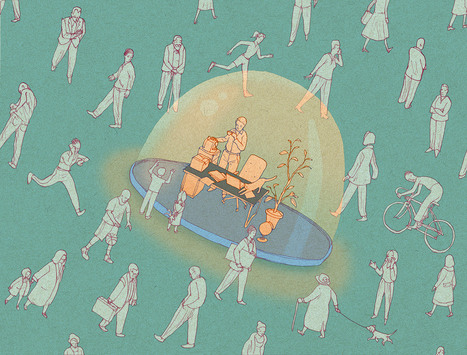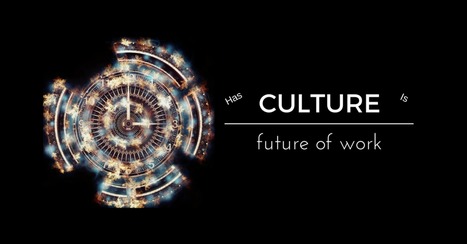 Your new post is loading...
 Your new post is loading...
Fuimos hablando el año pasado sobre el futuro del trabajo y su incertidumbre, cada vez más podemos leer muchos artículos intentando averiguar cómo podemos irnos adaptándonos a los cambios que el futuro dentro de las organizaciones nos esperan o deparan, pero algo que podemos es ir viendo es que el futuro del trabajo va a ser y puede que sea cada vez más asincrónico.
El Covid-19 convirtió el trabajo desde casa, en remoto desde cualquier parte del mundo está siendo la nueva normalidad para las organizaciones, ya que las oficinas cerraron para frenar la propagación del virus, actualmente siguen lidiando con las bajas por contagio, pero siguen funcionando, esto está produciendo que cada vez más se vean que se están volviendo asincrónicos. La investigación ha demostrado que incluso si la pandemia se desvanece, las organizaciones seguirán aumentando la productividad de los trabajadores remotos, la aparición que por fin empezamos a entender sobre la alfabetización digital, aprendizaje por conexiones digitales, organizaciones híbridas y cambiantes.
Si pudiéramos imaginar que estuviéramos en el año 1914 y fuéramos un trabajador común, típico de la época de principio de siglo XX, cuando en el final de la Revolución Industrial que estandarizó el horario de 9 a 5 que conocemos actualmente. Que trabajamos en una fábrica de automóviles en una línea de ensamblaje (que Henry Ford presentó con un año de anterioridad). A medida que el automóvil se mueve a lo largo de la cinta transportadora, nuestro único trabajo es colocar las ruedas y esperar el próximo automóvil.
“El mayor peligro en tiempos de turbulencia no es la turbulencia; es actuar con la lógica de ayer.” – Peter Drucker
I continually emphasize that the future of work is for us to create. Nothing is inevitable. Enormous positive possibilities are open to us.
I for one will be working for the rest of my life in some guise, and most of the people I know will want to work, to be the best they can be, to create value for the world for the indefinite future.
Thinking about the work that we both want to do and will have value, potentially even when machines can transcend human capabilities, is critical.
There will always be work for humans, and if we go about it the right way it will be exactly the work we most want to do.
Via David Hain
Forget automation. The workplace is already cracking up in profound ways, and Washington is sorely behind on dealing with it.
From 2005 to 2015, according to the best available estimate, the number of people in alternative work arrangements grew by 9 million and now represents roughly 16 percent of all U.S. workers, while the number of traditional employees declined by 400,000. A perhaps more striking way to put it is that during those 10 years, all net job growth in the American economy has been in contingent jobs.
Via Klaus Meschede, Miloš Bajčetić, Bobby Dillard
Until recently, there was almost no discussion of the implications of artificial intelligence (AI) in our daily lives, however, this is the topic everyone is talking today.
On this matter, eduInnovation and Getting Smart released a white paper on the implications of artificial intelligence in the way we live, learn and work. The paper Ask About AI: The Future of Learning and Work, is a result of the #AskAboutAI campaign, in which technologists, entrepreneurs, social scientists, investors and educators were asked three questions: What’s happening? What does it mean? And how to prepare for the future? In order to investigate the possible implications that AI will have for employment, education and ethics.
Via Miloš Bajčetić
Embracing digital culture, tools, and approaches
A Deloitte survey (sponsored by Facebook) asked C-suite executives for their perspectives on the future of work. Their responses reveal six themes about the future workplace—and six lessons to help leaders ease the transition.
Via David Hain, Create Wise Leader
We live in a world of accelerating change. New industries are constantly being born and old ones are becoming obsolete. A report by the World Economic Forum reveals that almost 65 percent of the jobs elementary school students will be doing in the future do not even exist yet. Both the workforce and our knowledge …
Via Dean J. Fusto, juandoming
Work as we know it is changing fast—and in ways most people can’t even imagine. It’s not just that jobs are changing; it’s also how we work, where we work, and how employers are adapting to these new rules.
“The future of work is all about employee experience,” says Jacob Morgan. The best-selling author, an authority on how the workplace is evolving, says employers need to change their approach if they want to attract and retain key talent.
“It comes down to three things: giving employees physical workspaces they want, having up-to-date technology (the tools they need), and a culture they can celebrate,” says the author of The Future of Work. His latest book on the topic, The Employee Experience Advantage, was released in March.
Via Edumorfosis, Mark E. Deschaine, PhD
Apple Park opens in a few weeks time. The new headquarters of one of the world’s most innovative companies, referred to by many as “spaceship campus” due to its flying saucer-like design, was one of the final acts from Steve Jobs before he passed in 2011. The building is aimed at encouraging collaboration and will provide employees with more opportunities to run into each other and interact, reflective of Jobs’ decision in 2000 to scrap plans for three separate buildings at Pixar in favour of one vast atrium-type space. The “spaceship” will contain a lake, meadow and orchard within its inner ring, while also offering a 100,000 square foot fitness center and two miles of walking and running paths across the 175-acre site.
Since as early as the 1800’s, fears of robots taking over human jobs has been a reality. As we enter the true age of robotics, those concerns are resurfacing, and educators are unsure about what jobs their students will be competing for. For example, IT jobs will grow by 22% through 2020 and jobs in STEM are said to see similar growth. Educators are expected to equip their students with skills that will translate into careers and yet they have no idea what these skills should be. While timeless skills such as critical thinking, languages and mathematics aid in every career they do not provide the specialized skills that “jobs of the future” may require. So, what are the jobs of the future and how can be best prepare students for them?
Via John Evans
Greetings. Globally one topic is generating discussions from texts to tweets to blogs to policy: jobs. In a world were job and careers are going through a transition in many industries at once j… Read all: The Education and Jobs Formula – Global Academic and Industry Collaboration Zone
Gallup’s latest research shows why companies are increasing their interest in gamification.The Gallup study finds 31% of employees are engaged at work (51% are disengaged and 17.5% actively disengaged). But what is most interesting is how this data compares when you apply a generational segmentation. It turns out Millennials are the least engaged generation with only 28.9% engaged as compared to 32.9% for Gen X & Boomers.
So how can various processes in human resources be “gamified” to provide an opportunity for employees across the generations to increase their levels of engagement, collaboration and recognition in the workplace?
The Future of Work Is Social Collaboration from Inside Out, where people connect around the why of work from who they really are as individuals in community.
They collaborate in generative conversations and co-create what’s next, i.e. their unique Contribution of value to society – what we might call Social Good.
They collaborate by taking the time to appreciate and align each other’s unique, hard wired, natural strengths, creating new levels of authentic and trusting relationships to take the Social Journey.
In the Future of Work, people will be drawn to a greater purpose - the outside - from who they are - the inside - their natural strengths and passions.
Via David Hain
I recently had the opportunity to speak at the Singularity University Summit in San Francisco on The Future of Work. After months of research on the topic, reading dozens of books and articles on AI, robotics, and economics, I came to a simple conclusion: the future of work is already here. And [...]
Via Carmen Ridaura
|
Will there be enough work in the future? Opinions are fairly divided between those who believe that technology advances will reduce human jobs, and those who believe that technology advances will produce as many jobs as they displace. It’s easier to predict the jobs that will be automated away by technology, but much more difficult to predict the new jobs that these same technologies will create. In the end, we don’t really know.
In December of 2017, the McKinsey Global Institute published Jobs Lost, Jobs Gained: Workforce Transition in a Time for Automation, a report that directly addresses this question. The McKinsey study examined in great detail the work that’s likely to be displaced by automation through 2030, as well as the jobs that are likely to be created over the same period. It analyzed data from 46 countries comprising almost 90 percent of global GDP, focusing particularly on six countries: China, Germany, India, Japan, Mexico and the US. For each of this six countries, the study modeled the potential for employment changes in more than 800 occupations based on different scenarios for the pace of automation adoption and for future labor demand.
The report’s overall conclusion is that a growing technology-based economy will create a significant number of new occupations, - as has been the case in the past, - which will more than offset declines in occupations displaced by automation. However, “while there may be enough work to maintain full employment to 2030 under most scenarios, the transitions will be very challenging - matching or even exceeding the scale of shifts out of agriculture and manufacturing we have seen in the past.”
Via Miloš Bajčetić
With a new generation poised to enter the workforce, organizations are simultaneously forced to combat two converging trends. First, Generation Z (Gen Z), consisting of those born after 1995, is entering the workforce. While Gen Z is anticipated to bring an unprecedented level of technology skills to the workforce, they also express apprehensions about their interpersonal communication skills. Throughout the article we will be following a prototypical Gen Z member, Emily, to illustrate the shifting experiences and expectations Gen Z brings to the workplace. (See sidebar: Meet Emily, a prototypical Generation Z member).
Second, emerging technologies, particularly automation, are expected to further disrupt the nature of the entry-level roles that this generation is poised to fill. Complicating this dynamic is the ambiguity surrounding this technical shift, in addition to the inherent uncertainty involved in predicting how today’s teenagers will behave in 10 years.
Given these new realities, this article explores how organizations can redesign entry-level jobs in a way that can both attract and engage Gen Z, while ensuring that the entry-level job continues to serve as the necessary training ground for incoming professionals. This will be essential for organizations seeking to generate a pipeline of future talent to help meet the organization’s evolving needs.
Via David Hain
This is an op-ed from Dave McKay, president and CEO of Royal Bank of Canada. We are entering a skills revolution, he writes, but Canadian students are not being prepared for the future. We need "people who work well with technology and work well with people – that can be the Canadian difference." He touts an RBC program called Future Launch - actually started last March using a system called Talentlink. Here's the content. The program also includes "a 'no résumé required' paid internship program, with selection based on skills, not work experience" in partnership with WE Schools, a UK-US-based charity (download the WE Schools kit).
Via Miloš Bajčetić
The technology-driven world in which we live is a world filled with promise but also challenges. Cars that drive themselves, machines that read X-rays, and algorithms that respond to customer-service inquiries are all manifestations of powerful new forms of automation. Yet even as these technologies increase productivity and improve our lives, their use will substitute for some work activities humans currently perform—a development that has sparked much public concern.
Building on our January 2017 report on automation, McKinsey Global Institute’s latest report, Jobs lost, jobs gained: Workforce transitions in a time of automation (PDF–5MB), assesses the number and types of jobs that might be created under different scenarios through 2030 and compares that to the jobs that could be lost to automation.
The results reveal a rich mosaic of potential shifts in occupations in the years ahead, with important implications for workforce skills and wages. Our key finding is that while there may be enough work to maintain full employment to 2030 under most scenarios, the transitions will be very challenging—matching or even exceeding the scale of shifts out of agriculture and manufacturing we have seen in the past.
Via David Hain, Create Wise Leader
Is the Future of Work about technology or about practices? Both are being touted, and they're related, but here I suggest that one has precedence.
If we use the new technologies in old ways, we’ll get incremental improvements. Command and control, silos, and transaction-based management can be supported, and even improved, but will still limit the possibilities. We can track closer. But we’re not going to be fundamentally transformative.
On the other hand, if we change the work practices, creating an environment where trust allows both safety and accountability, we can get improvements whether we use technology or not. People have the capability to work together using old technology. You won’t get the benefits of some of the improvements, but you’ll get a fundamentally different level of engagement and outcomes than with an old approach.
Together, of course, is where we really want to be. Technology can have a transformative amplification to those practices. Together, as they say, the whole is greater than the some of the parts.
I’ve argued that using new technologies like virtual reality and adaptive learning only make sense after you first implement good design (otherwise you’re putting lipstick on a pig, as the saying goes). The same is true here. Implementing radical new technologies on top of old practices that don’t reflect what we know about people, is a recipe for stagnation. Thus, to me, the Future of Work starts with practices that align with how we think, work, and learn, and are augmented with technology, not the other way around. Does that make sense to you?
Via Miloš Bajčetić, Stephania Savva, Ph.D, Mark E. Deschaine, PhD
Escribimos y conjeturamos acerca del futuro, pero el futuro lo estamos construyendo ahora, cada día y cada minuto, como diría Peter Drucker. Si pensamos acerca del futuro del “trabajo”, los últimos titulares destacan entre otras las siguientes tendencias: Muchos de los trabajos que realizarán los niños que ahora están en primaria aún no existen …
Our jobs have become prisons from which we don’t want to escape.
Via Kenneth Mikkelsen
Work 4.0: How Germany is shaping the future of work
Personal employment accounts, insurance and life-long learning are some of the initiatives under discussion, writes Silke Breimaier
It all sounds rather wonderful, doesn't it? Pick a scientifically designed culture that's been empirically proven to work by management researchers and consultants (Peters, Waterman, Deal and Kennedy researched over a hundred organisations - since augmented by thousands more case studies), implement it, and watch your company blossom before your eyes.
There's only one teeny-weeny problem. From an anthropological and sociological perspective (you know, the social sciences that actually research culture and society), the idea of a designed culture is absurd.
Via David Hain
Economists believe in full employment. Americans think that work builds character. But what if jobs aren’t working anymore?
Via Kenneth Mikkelsen
Un nuevo entorno productivo: globalizado y digital La lenta decadencia de Europa frente a las economías emergentes es un tsunami al que se intentó poner un muro de frágiles ladrillos con la Estrategia de Lisboa del 2000, cuyo objetivo era convertir a la Unión Europea en la economía del conocimiento más dinámica y competitiva del mundo. Desde este primer…
|

 Your new post is loading...
Your new post is loading...
 Your new post is loading...
Your new post is loading...










